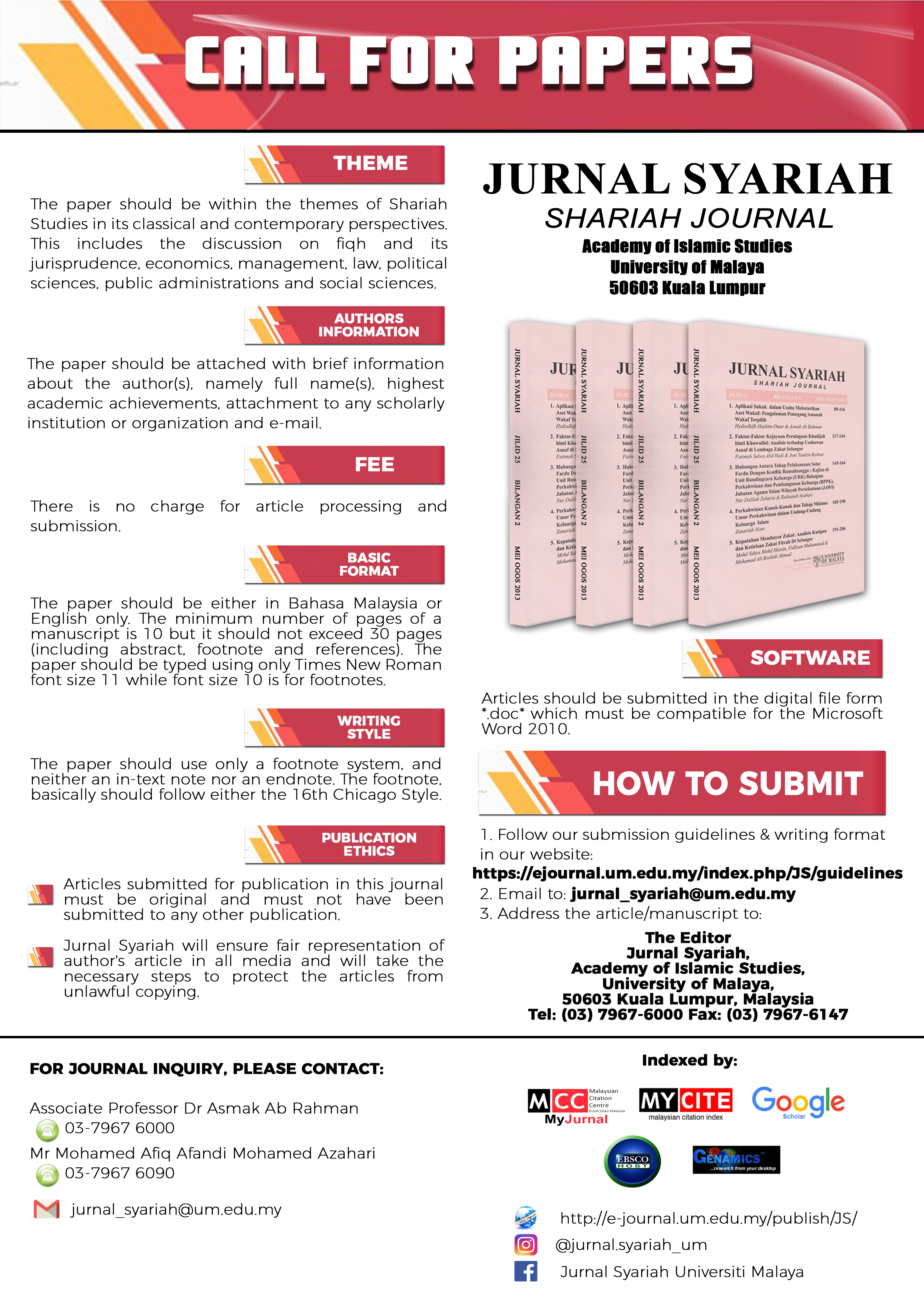NILAI-NILAI SISTEM PENGURUSAN KUALITI ISLAM BERASASKAN AL-QURAN DAN INTEGRASI ILMU SAINTIFIK
The Values of Islamic Quality Management System Based on the Quran and Integration of Scientific Knowledge
DOI:
https://doi.org/10.22452/js.vol23no1.2Keywords:
Islamic management system, tawhidi management concepts, accountability, amar ma‘ruf nahi munkar, justice (‘adalah), shura managementAbstract
Al-Quran is a holy kitab and a complete guidance for mankind to manage all aspects of daily life in this world. The holy Quran and the Sunnah of the Prophet (pbuh) even describe management systems that operate efficiently and effectively. Of course, management system either on the individual, familiy, community, organization or nation that are governed by the guidance of Quran will lead to the ultimate success (al-falah) of a civilization, not only in this world but in the Akhirat. However, the problems nowadays there are some Muslims who are still awed or applying Western management system which are mostly for temporary or for materialistic benefits only. Therefore, the management systems which are based on the holy Quran should be featured as a guide in addition to integrate with the knowledge of scientific management for implementing or managing an organizations. This article tried to show some aspects of values in managing the administrative affairs of each employees, especially workers in Malaysia. These values include the tawhidi management concepts, the value of trustworthy leadership and accountability, value of amar ma‘ruf nahi munkar, the implementation of justice (‘adalah) and the shura management principles, together with some suggestions for enhancing the quality management system through an Islamic perspective.
Downloads
Downloads
Published
How to Cite
Issue
Section
License

This work is licensed under a Creative Commons Attribution-NonCommercial 4.0 International License.
COPYRIGHT: All rights reserved. Not allowed to be reproduced any part of articles and contents of this journal in any form or by any way, whether electronic, mechanical, photocopying, recording or otherwise without permission in writing from the Chief Editor, Jurnal Syariah.



















